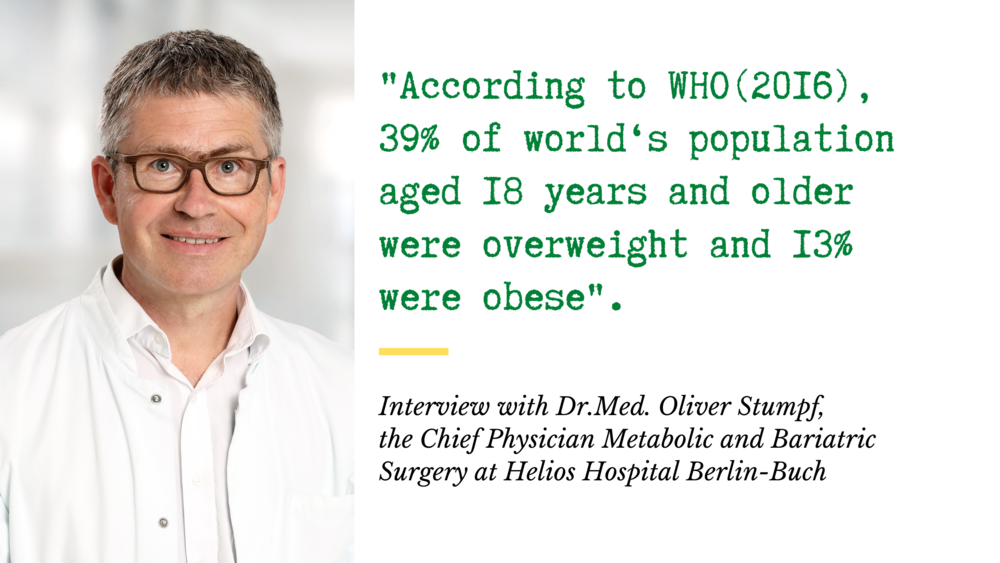
Adiposity - What is it?
Obesity definition
Obesity is a serious disease. According to the World Health Organization (WHO), it’s the fastest-growing health risk worldwide. Although most people know that too many pounds are bad for health, obesity still becomes more widespread among the world population. The increasing number of overweight children is also a matter of concern. Severe overweight or morbid obesity can impair health, leading to diseases such as high blood pressure, cardiovascular disease and diabetes. Severe overweight also affects the mental health, resulting in a negative self-image and lack of self-confidence – the reason why obese people might tend to isolate themselves from the society. Moreover, the life expectancy of obese patients is significantly reduced.
Causes of obesity
The causes of morbid obesity are a complex interplay of several factors. Not only the bad eating habits and lack of physical exercise contribute to obesity, but metabolic processes and genetic causes are also associated with the disease. At the genetic level most people are not "prepared" for the environment of today (excess food and reduced physical activity). Millions of years ago, when humankind set out from the African savannah to the present day, scarcity and hunger were the daily companions. However now, in times of abundance, this genomic imprinting doesn’t benefit the people of the present time and thus leads to diseases, such as obesity. Everybody knows how to lose weight. However, as we learn more about metabolic processes and genetic conditions, we understand that the general recommendation to "eat less and exercise more" cannot be the only solution. Of course, the crucial condition for a healthier and meaningful life is to eat less food with more nutrients and exercise more. However, it’s very difficult for obese people to get back theit normal weight. Most methods for losing weight are successful only in the short run, but then the old weight comes back and this time in worst cases the scale shows even more.
Body Mass Index
Body Mass Index (BMI) is a common tool to measure a nutritional status. To find your BMI, divide weight in kilograms by the square of the height in meters.
BMI = weight (kg) / height (m2)
A normal BMI is between 20 and 25. A BMI between 25 and 30 means overweight. Obesity is diagnosed, when a BMI is over 30. This is the point, where the weight undermines person’s health.
Having a BMI 35 or more means severe obesity. These people already have secondary diseases such as high blood pressure, diabetes and sleep apnoea due to this overweight.
People with a BMI over 40 have significantly increased risk of mortality. Therefore, obesity of the 3 class is also called morbid obesity.
| BMI 20 - 25 | Normal |
| BMI > 25 - 30 | Overweight |
| BMI > 30 - 35 | Obesity class 1 |
| BMI > 35 - 40 | Obesity class 2 |
| BMI > 40 | Adiposity class 3 |
|
|
|
The BMI calculation valid for adults only. To find BMI For children, age and sex are also taken into account.
Abdominal girth
The BMI only is not enough to measure the burden of obesity. Another important factor is the fat distribution pattern. The visceral fat mass compared to subcutaneous fat mass increases a high risk for the development of cardiovascular diseases. Abdominal obesity is also known as "apple shape" and subcutaneous obesity in the "pear shape" means an increase in fat storage in the region of the hips and thighs. You can calculate the fat distribution yourself, by measuring circumferences. If the waist-to-hip ratio is greater than 0.85 in women and greater than 0.90 in men, a person has abdominal obesity; if the ratio is less, peripheral obesity is diagnosed.
Related stories:
Do you need more information about Helios Hospitals or want to schedule your treatment?






